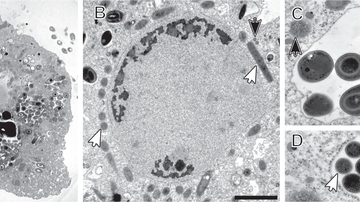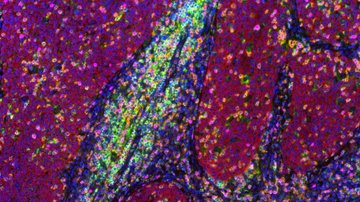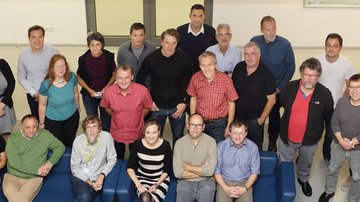
Genomics of Eukaryotes and Lateral Gene Transfer
Students on an international course mapping microbial diversity in the Mediterranean Sea
From 13th to 21st November, an international course organized by Charles University, Warsaw University and Sorbonne University in Paris took place at the BIOCEV centre.12 students from the above-mentioned universities learned the method of studying the diversity of microbial communities in the environment (so-called metabarcoding) using Illumina and Oxford Nanopore sequencing platforms. The main organizer of the course was the head of the Laboratory of the Faculty of Science of Charles University at BIOCEV Associate Professor Vladimír Hampl, Ph.D.
In the laboratory part, students processed 24 samples collected from different sites and depths in the Mediterranean Sea and prepared sequencing libraries. During the weekend, sequencing was performed using the BIOCEV Centre's genomics facility and approximately 5 million sequencing reads were generated. In the following days, the students analysed the data to determine that it originated from approximately 6,000 species of microbial eukaryotes.
In individual projects, students focused in more detail on answering a few selected questions: (i) how well the two sequencing methods used capture the diversity in these environments, (ii) how the community composition differs in different depths of the water column, (iii-iv) and how two important parasite groups, the Apicomplexa and Syndiniales, are represented and distributed in these environments. Interim results were presented on the last day of the course, but analyses of these unique data are unlikely to end there.


"I am glad that we were able to organize a course of this type at BIOCEV and invite experts from two foreign universities. I believe that it was beneficial for all the students and teachers involved and will certainly promote cooperation between these universities," says Vladimír Hampl, the main organizer and head of the laboratory at the Faculty of Science at BIOCEV. The course was made possible with the financial support of the university's 4EU+ mini-grant and the company Avantor, the main sponsor of the event.







